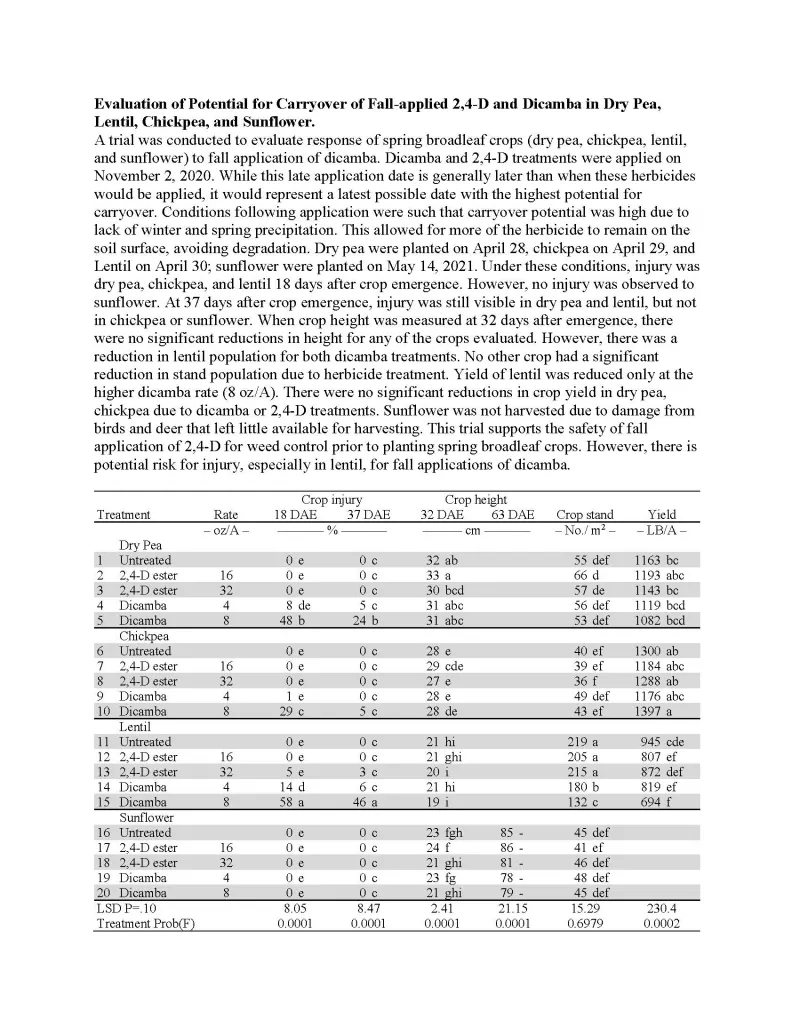A trial was conducted to evaluate response of spring broadleaf crops (dry pea, chickpea, lentil, and sunflower) to fall application of dicamba. Dicamba and 2,4-D treatments were applied on November 2, 2020. While this late application date is generally later than when these herbicides would be applied, it would represent a latest possible date with the highest potential for carryover. Conditions following application were such that carryover potential was high due to lack of winter and spring precipitation. This allowed for more of the herbicide to remain on the soil surface, avoiding degradation. Dry pea were planted on April 28, chickpea on April 29, and Lentil on April 30; sunflower were planted on May 14, 2021. Under these conditions, injury was dry pea, chickpea, and lentil 18 days after crop emergence. However, no injury was observed to sunflower. At 37 days after crop emergence, injury was still visible in dry pea and lentil, but not in chickpea or sunflower. When crop height was measured at 32 days after emergence, there were no significant reductions in height for any of the crops evaluated. However, there was a reduction in lentil population for both dicamba treatments. No other crop had a significant reduction in stand population due to herbicide treatment. Yield of lentil was reduced only at the higher dicamba rate (8 oz/A). There were no significant reductions in crop yield in dry pea, chickpea due to dicamba or 2,4-D treatments. Sunflower was not harvested due to damage from birds and deer that left little available for harvesting. This trial supports the safety of fall application of 2,4-D for weed control prior to planting spring broadleaf crops. However, there is potential risk for injury, especially in lentil, for fall applications of dicamba.

